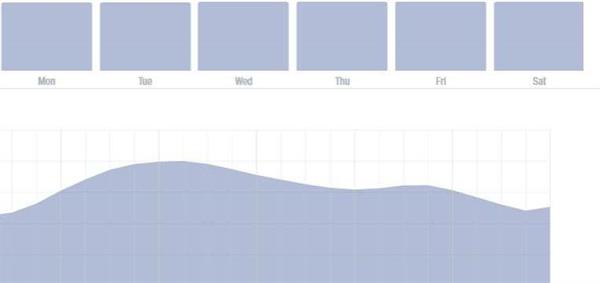Facebook Features for Your Small Business Page

As the most-used network by both businesses and consumers - and one that makes its revenue on advertising - it's crucial to explore any available features that Facebook offers to help increase organic reach and improve engagement.
1. Facebook Insights
The analytics provided - for free - by Facebook should be explored regularly, as SBOs may notice drastic changes in their organic reach (who sees their posts without paying for it) and engagement metrics even in a short period. Facebook regularly makes updates to its algorithms, which could require Page admins to tweak their strategies accordingly. For example, Facebook is reportedly prioritizing Reactions (angry, wow, love, haha, sad) over Likes - with the idea that a Reaction is a stronger indicator that people want to see similar posts. With each algorithm change, a SBO could see peaks and valleys in their engagement and reach. It's not uncommon for one day to enjoy 10 percent organic reach (dismal but average) and then the next day and from then on, have less than 1 percent organic reach.
Aside from the vanity metrics provided to admins on the Page itself, the drastic change could go unnoticed without checking Insights often (at least weekly). Types of information found in Insights include:
- When the Page's audience is most active by time and day

- Competitor Pages to watch
- Success of different post types based on average reach and engagement
- Actions taken on page:
- Clicked for directions
- Clicked phone number
- Clicked website
- Clicked action button
Facebook has some incredibly advanced (yet simple to use) targeting features within its Ad Manager, but an under-discussed free tool is its Targeting option for organic posts, which can be used to improve the relevancy of posts. Although this might actually limit the number of people who see the post, the recipients have expressed interest in the topic - making them more primed for conversion. To get started, simply create a new post and click on the crosshairs icon to set a preferred audience.

3. Call-to-Action
Facebook Pages should be updated regularly, yes, but there is perhaps no better chance to turn onlookers into customers than with Facebook's call-to-action (CTA) set by the business itself. Whether it's book services, get a quote, visit a website or call now, companies can set their CTA to their ultimate goal for being on the network. The CTA is ever-present on the Page and its effectiveness can be tracked within Facebook Insights as well as third-party analytics system. For example, if the goal of a Page is to drive traffic to a website for visitors to ultimately sign up for services, using a custom URL within that CTA that is attached to a Google Analytics conversion goal, can provide monetary data which can be used to calculate social media's return on investment (ROI). Read, " Baller on a Budget: Social Media Costs."

4. Instant Replies
Without a social media account staffed 24/7, it can be difficult to keep up with incoming messages on the different networks. Still, it's imperative small businesses try as people who are contacting a company through social media tend to want on-demand service, which could indicate they are close to making a purchase decision or are current customers the business is going to want to retain. One way to keep up with incoming messages is to set up Instant Replies, which is basically a chatbot that tells a social user that the business is closed but will respond in the morning, can be reached for emergencies at this number or any other message the business decides to use.
Auto response does not get calculated in response time (that "typically replies in x hours" note on Pages), but will help set users' expectations, which can lessen the frustration someone might be feeling if they don't get an instant response. Additionally, a company's use of features like this could indicate that it's responsive to customers and care about its Page quality. And, although it has not officially been reported that Facebook uses quality signals in its algorithms (similar to the way Google ranks sites in the search engines) it's definitely not out of the realm of possibility that it could sooner than later.

5. Native Formatting
 It is the recommendation of many to use social media management platforms (Hootsuite, Sprout Social) to manage all the different networks (Twitter, Facebook, Google, LinkedIn) so that both incoming and outgoing messages are in one place and businesses can hit all the different networks at the same time. It's a good strategy in that it reduces steps for social media management and therefore saves valuable time. The problem with posting to Facebook on any of the popular platforms, however, is that users are often not able to format the posts as optimally as they could if they posted directly to their Page instead.
It is the recommendation of many to use social media management platforms (Hootsuite, Sprout Social) to manage all the different networks (Twitter, Facebook, Google, LinkedIn) so that both incoming and outgoing messages are in one place and businesses can hit all the different networks at the same time. It's a good strategy in that it reduces steps for social media management and therefore saves valuable time. The problem with posting to Facebook on any of the popular platforms, however, is that users are often not able to format the posts as optimally as they could if they posted directly to their Page instead.
By posting to Facebook, admins can not only adjust the title and description (if they are sharing a link, for example, irrelevant text can sometimes populate in that field), but they can also schedule the post (even if it's just for 15 minutes in advance) and see how it displays on desktop and mobile. Since Facebook is the most-used app (Flurry, 2016), it makes sense to spend the extra time (seconds, really) to ensure the posts look good on mobile.
Pay Attention
Like an SEO professional keeps close tabs on Google news, it's imperative for small business owners to be aware of the features that Facebook releases. Each new feature is an indication of what Facebook thinks makes a quality page - responsive, complete, actionable, relevant. Keeping up with these features is quickly becoming the only way for businesses to compete for organic reach. When an SBO starts to think of their Facebook Page like a website that needs to be optimized for search placement, they may start to enjoy some of the brand exposure they're after.
Subscribe to Our Newsletter!
Latest in Social Media










